Streamline Call Center Quality Assurance with Monitoring Software
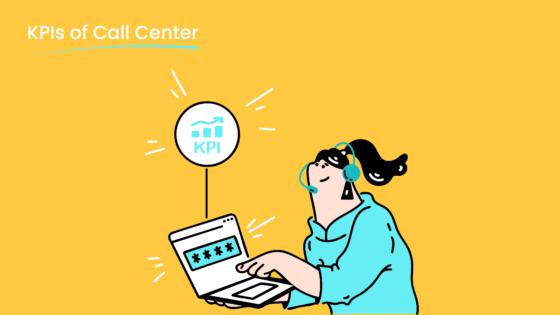
Quality assurance plays a vital role in ensuring your call center delivers exceptional customer service. It helps you maintain high standards and meet customer expectations. Did you know that only 53% of customers describe their call center experience as great? Additionally, 46% of unresolved callers believe agents could have done more. These statistics highlight the need for better assurance practices.
This is where quality monitoring software for call center operations becomes indispensable. Tools like Sobot’s solutions empower you to track, analyze, and enhance agent performance. They provide the insights you need to improve first-call resolution rates and elevate customer satisfaction.
Understanding Call Center Quality Assurance and Monitoring Software
What is Call Center Quality Assurance?
Call center quality assurance ensures that your customer service meets high standards consistently. It involves evaluating agent performance, monitoring customer interactions, and identifying areas for improvement. By implementing structured evaluation criteria, you can reduce personal biases and ensure fair assessments. This process not only enhances customer satisfaction but also improves operational efficiency by automating evaluations and providing actionable insights through data analytics.
Did you know? Quality assurance tools also support employee experience by offering training and feedback. This is especially important in the call center industry, where high turnover rates are common. By addressing issues early and fostering skill development, you can create a more supportive work environment.
What is Quality Monitoring Software for Call Centers?
Quality monitoring software for call center operations is a specialized tool designed to track, analyze, and improve the quality of customer interactions. Unlike traditional quality assurance methods, this software leverages advanced features like real-time monitoring, automated data analysis, and machine learning for anomaly detection. These capabilities allow you to identify problems quickly and make data-driven decisions to enhance service quality.
| Feature | Description |
|---|---|
| Machine Learning for Anomaly Detection | Identifies unusual patterns in calls that traditional methods might miss. |
| Real-Time Monitoring | Detects and resolves issues as they occur, ensuring immediate action. |
| Automated Data Quality Monitoring | Applies data quality rules automatically, reducing manual effort. |
| Data Quality Monitoring Dashboard | Offers visual metrics and customizable alerts for better decision-making. |
| Data Profiling and Metadata Management | Regularly checks data for anomalies and ensures compliance with industry standards. |
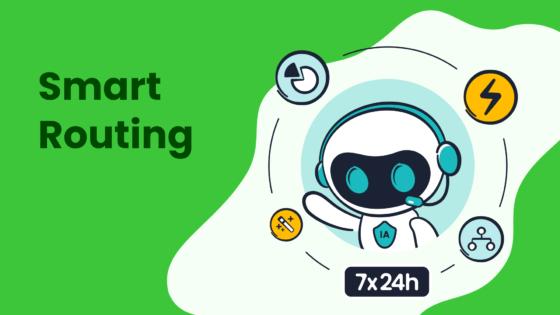
This software also integrates seamlessly with existing systems, making it easier to unify your call center operations. For example, Sobot’s Voice/Call Center solution offers features like intelligent IVR, smart call routing, and AI-powered voicebots, which streamline workflows and improve overall efficiency.
How Call Center Call Monitoring Enhances Quality Assurance
Call center call monitoring plays a pivotal role in enhancing quality assurance. By analyzing customer interactions, you can identify strengths and weaknesses in agent performance. This helps you provide targeted feedback and training, ensuring continuous improvement. Monitoring also enables you to track key performance indicators (KPIs) like First Call Resolution (FCR) and Average Handle Time (AHT), which are critical for maintaining high service standards.
Pro Tip: Align your quality monitoring goals with customer expectations to avoid undermining the customer experience. Focus on metrics like FCR to enhance customer satisfaction.
Additionally, call monitoring helps you address challenges like balancing quality with efficiency and achieving consistency across multiple channels. It ensures that agents deliver value by monitoring their activity across various platforms. Real-time data analysis further supports decision-making, enabling you to adapt quickly to evolving customer needs.
| Benefit | Description |
|---|---|
| Increased Compliance and Security | Tracks agent screens to ensure adherence to regulations and prevent security breaches. |
| Reduce Insider Risk | Audits user sessions to identify workflow improvements and minimize data breaches. |
| Ensure Agents are Delivering Value | Monitors agent activity across channels to maintain high service quality. |
| Shorter Wait Times for Customers | Identifies bottlenecks in call handling, reducing average speed of answer (ASA). |
| Driving Continuous Improvement | Uses customer behavior data to refine service delivery and boost agent performance. |
By leveraging tools like Sobot’s quality monitoring software for call center operations, you can transform your quality assurance practices. These tools not only enhance customer satisfaction but also drive operational efficiency, making them indispensable for modern call centers.
Benefits of Call Center Quality Monitoring Software

Boosting Agent Performance with Real-Time Feedback
Real-time feedback is a game-changer for improving agent performance in your call center. It allows you to address issues as they arise, ensuring agents can correct mistakes immediately. This approach not only enhances customer interactions but also motivates agents by providing timely and actionable guidance.
- Real-time feedback identifies specific issues during calls, enabling quick resolutions.
- Supervisors can monitor live calls and provide instant coaching, helping agents refine their communication skills.
- Addressing fresh problems keeps agents engaged and fosters continuous improvement.
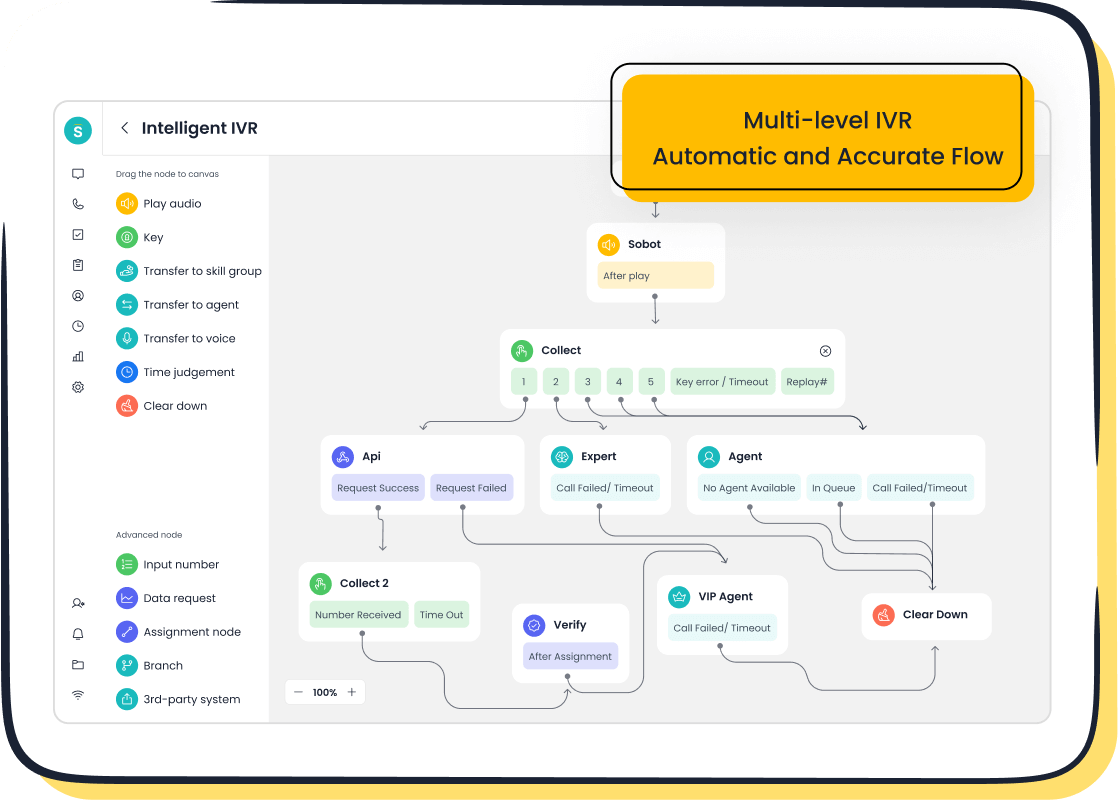
For example, Sobot’s Voice/Call Center solution offers live monitoring features that empower supervisors to track agent activity and provide immediate feedback. This ensures that agents consistently meet quality standards, ultimately improving quality scores across the board.
Pro Tip: Use real-time feedback to focus on key performance indicators like First Call Resolution (FCR) and Average Handle Time (AHT). This helps you align agent performance with customer expectations.
Enhancing Customer Experience Through Consistent Service
Consistency is the cornerstone of exceptional customer service. Call center call monitoring ensures that every customer interaction meets your quality standards. By analyzing recorded calls and live interactions, you can identify recurring issues and implement targeted solutions.
- Monitoring software pinpoints areas where service falls short, allowing you to take corrective action.
- Analyzing customer interactions helps you refine communication strategies and improve agent performance.
- Real-time quality management enables immediate issue resolution, enhancing the overall customer experience.
Sobot’s quality monitoring tools excel in delivering consistent service. Features like intelligent IVR and smart call routing ensure that customers are connected to the right agents quickly. This reduces wait times and enhances customer satisfaction. Additionally, supervisors can use insights from monitoring data to provide targeted training, ensuring agents deliver consistent, high-quality service.
Did you know? Studies show that consistent service delivery significantly boosts customer satisfaction scores and loyalty. By addressing recurring issues, you can create a seamless experience that keeps customers coming back.
Driving Operational Efficiency with Data-Driven Insights
Data-driven insights are essential for optimizing your call center operations. Quality monitoring software provides valuable metrics that help you measure and improve efficiency. By tracking key performance indicators, you can identify bottlenecks and implement strategies to streamline workflows.
| Metric | Impact on Efficiency |
|---|---|
| Customer Satisfaction Score | Higher scores indicate improved service quality. |
| First Call Resolution Rate | Increased rates lead to reduced repeat calls. |
| Average Handling Time | Shorter times enhance overall operational throughput. |
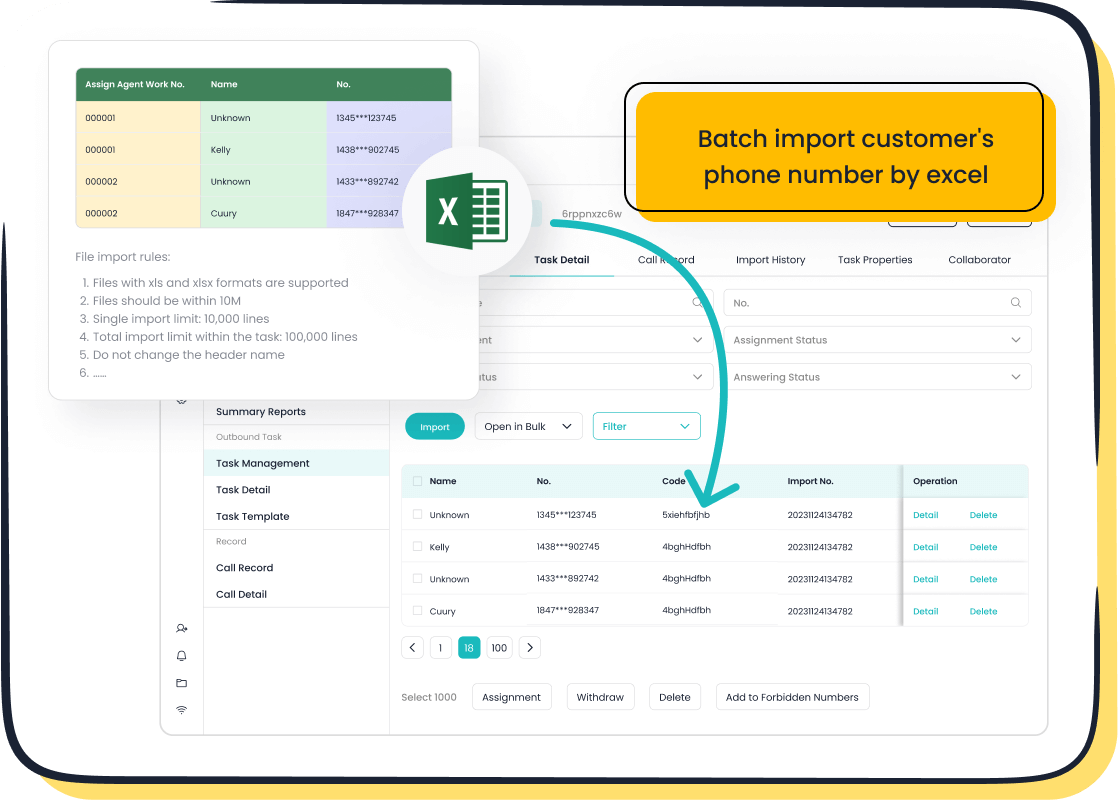
Sobot’s Voice/Call Center solution leverages advanced analytics to provide actionable insights. For instance, its call tracking and data profiling features allow you to monitor customer interactions and identify trends. This helps you make informed decisions that enhance quality assurance and operational efficiency.
Predictive analytics also play a crucial role. By forecasting customer behavior, you can proactively address potential issues and improve service delivery. This not only boosts agent performance but also ensures a smoother customer experience.
Note: Regularly review your monitoring data to identify areas for improvement. This helps you stay ahead of customer needs and maintain high-quality service standards.
Leveraging Sobot's Voice/Call Center for Comprehensive Monitoring
Sobot's Voice/Call Center offers a powerful solution for monitoring and improving your call center operations. It combines advanced technology with user-friendly features to help you track agent performance, enhance customer interactions, and achieve operational excellence. By leveraging this tool, you can ensure that every call meets your quality standards.
Key Features That Drive Improvement
Sobot's Voice/Call Center includes several features designed to optimize performance and streamline workflows. These features provide real-time insights and actionable data, enabling you to make informed decisions. Here are some of the standout capabilities:
- Intelligent IVR: Customize call flows and route customers to the right agents quickly. This reduces wait times and improves the overall experience.
- Real-Time Monitoring: Track live calls and agent activity to address issues immediately. Supervisors can provide instant feedback, ensuring continuous improvement.
- AI-Powered Voicebot: Automate routine interactions with intelligent voicebots, allowing agents to focus on complex tasks.
- Call Tracking and Analytics: Analyze call data to identify trends and areas for improvement. This helps you refine strategies and boost performance.
- Global Number Availability: Access phone numbers worldwide, ensuring seamless communication with customers across regions.
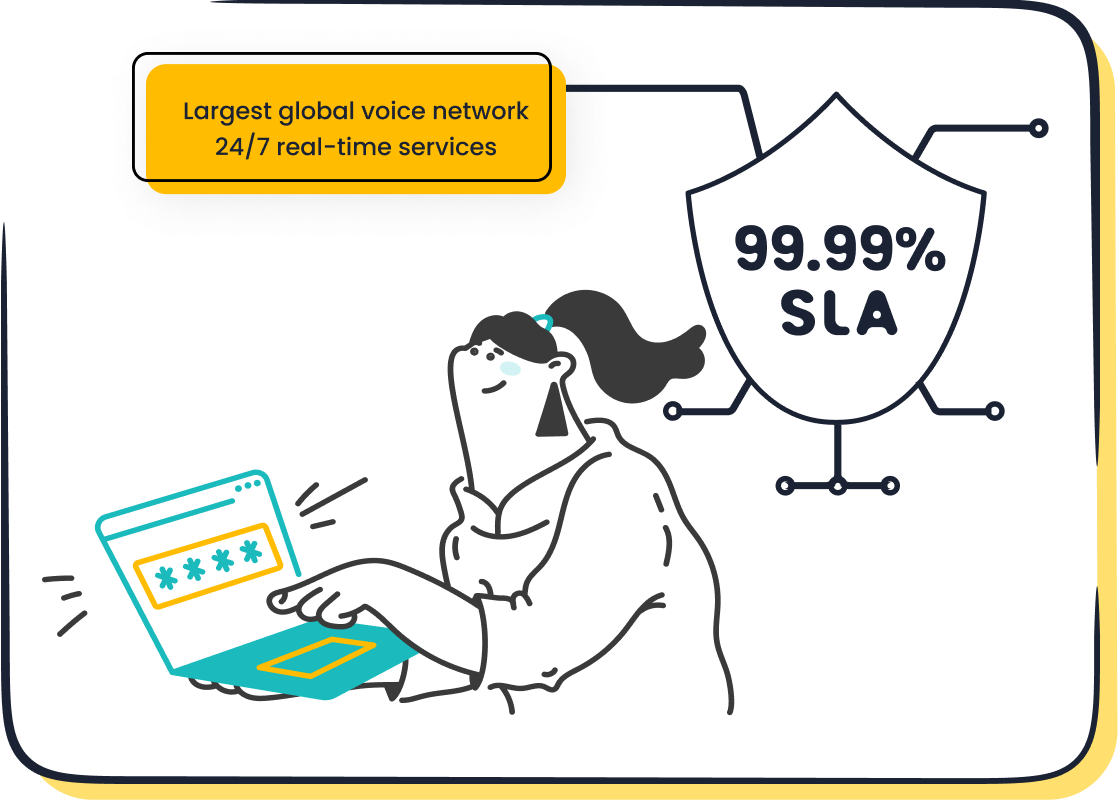
These features work together to create a comprehensive monitoring system that enhances both agent performance and customer satisfaction.
Real-World Success: Samsung's Story
Samsung's experience with Sobot's all-in-one solution highlights the impact of comprehensive monitoring. By integrating Sobot's tools, Samsung achieved a 97% customer satisfaction score. This success demonstrates how effective monitoring can transform your call center operations. The ability to unify communication channels and provide agents with actionable insights played a crucial role in this achievement.
Did you know? Real-time monitoring not only improves agent performance but also helps you identify and resolve bottlenecks in your workflows. This ensures a smoother experience for both agents and customers.
Why Choose Sobot's Voice/Call Center?
Sobot's Voice/Call Center stands out for its reliability and scalability. With a 99.99% system uptime and seamless integration capabilities, it supports businesses of all sizes. Whether you're managing a small team or a global operation, Sobot's solution adapts to your needs. Its AI-driven features and data analytics tools empower you to monitor performance effectively and drive continuous improvement.
By choosing Sobot, you gain access to a stable and secure platform that enhances your call center's efficiency. The combination of advanced technology and user-friendly design ensures that you can focus on delivering exceptional service while the system handles the complexities of monitoring and analysis.
Pro Tip: Use Sobot's analytics tools to track key metrics like First Call Resolution (FCR) and Average Handle Time (AHT). These insights help you identify areas for improvement and align your operations with customer expectations.

Incorporating Sobot's Voice/Call Center into your quality assurance strategy ensures that your call center delivers consistent, high-quality service. The result is a more efficient operation, happier agents, and satisfied customers.
Actionable Tips for Implementing Quality Monitoring Software
Define Clear Goals for Call Center Quality Monitoring
Setting clear goals is the foundation of an effective call center monitoring strategy. When you define specific objectives, you create a focused framework for evaluating agent performance and customer interactions. Clear goals ensure that agents are assessed using fair and realistic metrics, which motivates them to improve quality assurance practices.
For example, you might aim to increase First Call Resolution (FCR) rates or reduce Average Handle Time (AHT). These goals help you align monitoring efforts with customer expectations. Additionally, clear objectives allow you to provide timely feedback and personalized coaching, which enhances agent performance and customer satisfaction.
Tip: Regularly review your goals to ensure they remain aligned with your business priorities and customer needs.
Select the Right Call Center Quality Monitoring Software
Choosing the right software is critical to improving quality assurance in your call center. Look for tools that offer features like real-time call monitoring, call recording, and performance analytics. These capabilities allow you to track agent performance and identify areas for improvement.
| Feature | Description |
|---|---|
| Real-Time Call Monitoring | Monitor ongoing calls and assess agent performance with live dashboards. |
| Call Recording and Evaluation | Review agent-customer interactions for training and quality assurance. |
| Silent Listening and Coaching | Observe calls in real-time and provide on-the-spot coaching. |
| Compliance Monitoring | Ensure adherence to legal and industry standards. |
Invest in QA software that integrates seamlessly with your existing systems. For instance, Sobot’s call monitoring tools offer intelligent IVR and AI-powered voicebots, which streamline workflows and enhance operational efficiency.
Pro Tip: Evaluate software based on your specific needs, such as scalability and ease of use, to ensure long-term success.
Train Agents and Supervisors on Monitoring Tools
Training is essential for maximizing the benefits of call monitoring tools. Comprehensive onboarding prepares new hires to use the software effectively. Ongoing training keeps agents updated on new features and technologies, ensuring adaptability.
- Role-playing exercises provide practical experience in handling real-life scenarios.
- Peer learning fosters knowledge sharing and improves team performance.
- Regular assessments identify skill gaps and inform targeted training initiatives.
For example, supervisors can use Sobot’s real-time monitoring features to coach agents during live calls. This hands-on approach boosts confidence and enhances problem-solving skills.
Note: Training should be an ongoing process to ensure agents and supervisors stay proficient with the tools.
Integrate Sobot's Voice/Call Center with Existing Systems
Integrating Sobot's Voice/Call Center with your existing systems is a seamless process that enhances your call center's efficiency. This integration ensures that your tools work together, creating a unified platform for managing customer interactions. By connecting Sobot's solution with your CRM, ERP, or ticketing systems, you can streamline workflows and improve data accessibility.
Benefits of Integration
- Unified Customer Data: Integration consolidates customer information from multiple sources. Agents can access complete profiles, reducing repetitive questions and improving service quality.
- Enhanced Workflow Automation: Automating tasks like call routing and ticket creation saves time and minimizes errors.
- Real-Time Insights: Integrated systems provide real-time analytics, helping you make informed decisions quickly.
- Improved Collaboration: Teams can share data effortlessly, fostering better communication and faster issue resolution.
Example: Samsung integrated Sobot's Voice/Call Center with its internal systems, achieving a 30% increase in agent efficiency. This integration allowed agents to access customer histories instantly, reducing call handling times and improving satisfaction rates.
Key Features That Simplify Integration
Sobot's Voice/Call Center offers features designed for easy integration:
- API Support: Connect with popular platforms like Salesforce and Shopify effortlessly.
- Global Compatibility: Access phone numbers worldwide and ensure smooth communication across regions.
- Secure Data Transfer: Encryption ensures compliance with industry standards.
Pro Tip: Use Sobot's drag-and-drop IVR builder to customize workflows without technical expertise. This feature simplifies the integration process and enhances operational efficiency.
By integrating Sobot's Voice/Call Center, you create a cohesive system that supports your call center's quality monitoring efforts. This approach not only improves agent performance but also elevates the customer experience.
Best Practices for Leveraging Call Center Quality Monitoring Software

Use Analytics to Provide Constructive Feedback
Analytics plays a vital role in improving call quality standards. By analyzing call recordings, sentiment data, and customer feedback, you can identify areas where agents need support. For example, AI-driven analytics can highlight weak spots in agent knowledge or skill sets. This allows you to design tailored training sessions that directly address these gaps.
Metrics such as call abandonment rate, average speed of answer (ASA), and interaction sentiment score provide valuable insights. These metrics help you measure agent performance and customer satisfaction. For instance, a high call abandonment rate might indicate long wait times, while a low interaction sentiment score could signal dissatisfaction during calls. Addressing these issues ensures agents meet call quality standards consistently.
Tip: Use analytics to provide feedback that is specific and actionable. This approach motivates agents to improve and aligns their performance with your call quality monitoring best practices.
Monitor All Customer Support Channels for Holistic Insights
Monitoring all customer support channels ensures you gain a complete understanding of your service quality. Customers interact with businesses through various platforms, including phone, email, and social media. Examining data from all these channels helps you identify trends and improve metrics like Customer Satisfaction (CSAT) and Net Promoter Score (NPS).
For example, 53% of retailers are investing in multi-channel support tools to enhance customer experiences. By analyzing data across channels, you can uncover inefficiencies and refine your processes. This approach not only improves customer retention but also ensures your call quality monitoring best practices extend to every interaction.
Pro Tip: Use multi-channel analysis to identify recurring issues. This helps you implement solutions that enhance service consistency across all platforms.
Foster a Supportive Culture for Quality Assurance
A supportive culture is essential for maintaining high call quality standards. Regular feedback and practical exercises, such as role-playing, create an environment where agents feel encouraged to improve. Constructive feedback helps agents recognize their strengths and address areas for growth.
When feedback is delivered in a positive manner, it fosters a culture of learning. This promotes continuous improvement and enhances team performance. For example, role-playing exercises allow agents to practice real-world scenarios, boosting their confidence and problem-solving skills.
Did you know? A supportive culture not only improves agent performance but also reduces turnover rates. Happy agents are more likely to deliver exceptional service, ensuring customer satisfaction.
Regularly Update Quality Standards and Metrics
Call center environments constantly evolve, driven by changing customer expectations and technological advancements. To keep up, you must regularly update your quality standards and metrics. This ensures your team consistently delivers exceptional service while meeting industry benchmarks.
Start by reviewing your current metrics. Compare them with global benchmarks to identify areas for improvement. For example, the average speed of answer globally is 34.4 seconds, while the first call resolution rate typically ranges between 70% and 75%. If your metrics fall short, it’s time to refine your standards.
| Metric | Global Benchmark |
|---|---|
| Average Call Duration | 5 minutes and 2 seconds |
| Lead Response Time | Varies by industry |
| Dialing Efficiency | 80% in 20 seconds |
| Average Speed of Answer | 34.4 seconds |
| First Call Resolution | 70% – 75% |
| Average Handling Time | 6 minutes |
| Call Abandonment Rate | 5% – 8% |
| Customer Satisfaction Score | 75% – 80% |
Tip: Use these benchmarks as a guide to set realistic and achievable goals for your team.
Updating quality standards also involves incorporating feedback from agents and customers. Agents can provide insights into challenges they face, while customer feedback highlights areas needing attention. This collaborative approach ensures your standards remain relevant and practical.
Additionally, leverage monitoring software like Sobot’s Voice/Call Center to track performance in real time. Features such as call tracking and analytics help you identify trends and adjust metrics accordingly. For instance, if your average handling time exceeds six minutes, you can analyze call data to pinpoint inefficiencies.
Regular updates to your quality metrics not only improve service but also boost agent morale. Clear and updated standards give agents a sense of direction and purpose, motivating them to perform better. By staying proactive, you ensure your call center remains competitive and customer-focused.
Pro Tip: Schedule quarterly reviews of your quality metrics to stay aligned with industry trends and customer expectations.
Overcoming Challenges in Call Center Quality Monitoring
Addressing Privacy Concerns with Transparent Policies
Privacy concerns are a significant challenge in call center quality monitoring. Customers expect their data to remain secure, and failing to meet these expectations can damage trust. Transparent policies are essential for addressing these concerns effectively.
Start by complying with key regulations like GDPR, TCPA, and HIPAA. For example, GDPR requires you to obtain explicit consent before recording calls, while HIPAA mandates the secure handling of Protected Health Information (PHI). These regulations ensure legal compliance and build customer confidence.
| Regulation | Key Requirement | Implication |
|---|---|---|
| GDPR | Obtain explicit consent before recording calls | Legal requirement to inform customers and maintain trust |
| TCPA | Avoid calling numbers on the DNC registry | Protects consumers from unsolicited calls and avoids penalties |
| HIPAA | Secure Protected Health Information (PHI) | Essential for compliance in healthcare-related call centers |
To enhance privacy, implement data mapping to understand what personal data you collect. Train your employees on compliance requirements and use secure technology for call recording and consent management. These steps ensure your call center meets privacy standards while maintaining operational efficiency.
Tip: Clearly communicate your monitoring policies to both customers and agents. Transparency reduces anxiety and fosters trust.
Avoiding Over-Reliance on Automation in Quality Assurance
Automation has revolutionized call center quality assurance, but over-reliance on it can create blind spots. Automated systems follow predefined patterns, which may miss unexpected scenarios or subtle usability issues.
For example, automated tests excel at handling known situations but struggle with unpredictable customer interactions. This limitation can lead to a false sense of security, as automation cannot replicate human intuition. To address this, balance automation with human oversight. Use automated tools for routine tasks like call transcription and sentiment analysis, but rely on supervisors for nuanced evaluations.
- Automation identifies trends and patterns efficiently.
- Human reviewers provide context and address unique challenges.
- Combining both approaches ensures comprehensive quality assurance.
Pro Tip: Regularly review your automation processes to identify gaps. Incorporate human insights to refine your quality monitoring strategy.
Ensuring Scalability with Sobot's Cloud-Based Solutions
Scalability is crucial for growing call centers. Sobot's cloud-based solutions provide the flexibility and reliability you need to handle increasing call volumes without compromising quality. These solutions offer advanced features like intelligent IVR, real-time monitoring, and AI-powered voicebots, ensuring seamless operations.
| Metric | Value |
|---|---|
| Reduction in inbound discussion | 20% |
| Positive feedback rate | 96% |
| Correct answers rate | 80% |
| Customer satisfaction (CSAT) | 97% |
| Problem resolution rate | 85% |
| Increase in sign-off rate | 35% |
| Increase in COD collection rate | 40% |
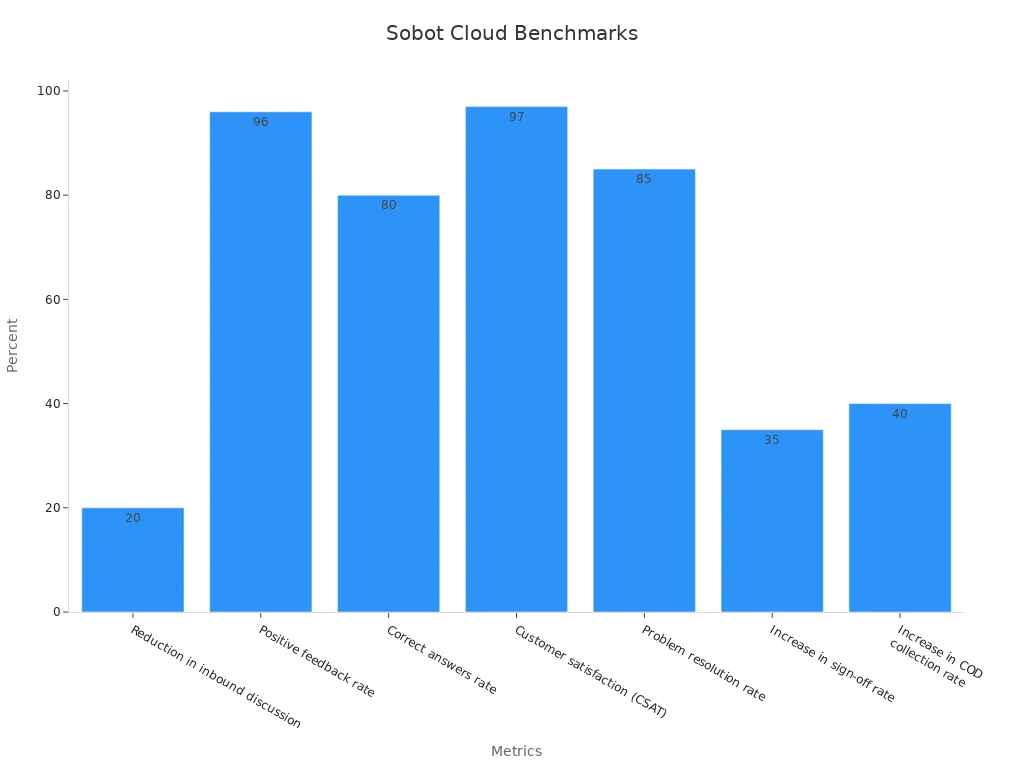
Sobot's solutions adapt to your needs, whether you're managing a small team or a global operation. With a 99.99% system uptime and seamless integration capabilities, these tools ensure consistent performance. By leveraging Sobot's cloud-based platform, you can scale your operations while maintaining high-quality service.
Did you know? Sobot's cloud-based solutions have helped businesses achieve a 97% customer satisfaction rate, demonstrating their effectiveness in large-scale call centers.
Monitoring software transforms call center quality assurance by providing tools that improve agent performance and customer satisfaction. Real-time analytics deliver immediate insights, enabling quick adjustments to enhance interactions. AI-driven insights identify customer frustrations, ensuring faster resolutions. Automated evaluations eliminate bias, creating fair assessments that elevate service quality.
Sobot's Voice/Call Center combines these features with intelligent IVR and AI-powered voicebots to streamline operations. Its real-time monitoring and analytics ensure consistent service delivery. Explore Sobot's solutions to optimize your call center and achieve exceptional results.
FAQ
What is the main purpose of call center quality monitoring software?
Call center quality monitoring software helps you track and improve agent performance. It ensures customer interactions meet your standards. By analyzing data, you can identify areas for improvement, provide feedback, and enhance customer satisfaction.
How does real-time monitoring benefit my call center?
Real-time monitoring allows you to address issues as they happen. You can guide agents during calls, resolve problems quickly, and maintain high service quality. This feature improves both agent performance and customer experience.
Can Sobot’s Voice/Call Center integrate with my existing systems?
Yes, Sobot’s Voice/Call Center integrates seamlessly with CRM, ERP, and ticketing systems. This integration unifies customer data, streamlines workflows, and enhances operational efficiency. It ensures your tools work together for better results.
Is Sobot’s Voice/Call Center suitable for small businesses?
Absolutely! Sobot’s Voice/Call Center adapts to businesses of all sizes. Its scalable features, like intelligent IVR and AI-powered voicebots, support small teams while ensuring efficiency. You can grow your operations without compromising quality.
How does Sobot ensure data security in call monitoring?
Sobot uses encrypted data transfer and complies with global standards like GDPR and HIPAA. These measures protect customer information and ensure secure call recordings. You can trust Sobot to maintain privacy and security.
See Also
Essential Tips for Call Center Quality Assurance Tools
Enhancing Call Center Efficiency Through Effective Monitoring
Top Strategies for Effective Call Center Quality Management
